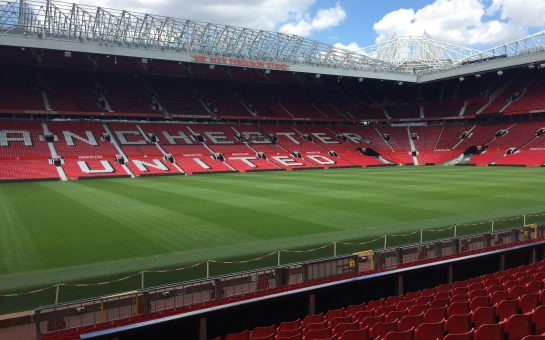The Premier League season has barely even started but the managerial mind games have already begun.
Louis van Gaal’s suggestion that missing this season’s Champions League would hinder Manchester United’s Premier League ambitions goes against common thought.
Any football fan could tell you that teams are vulnerable to dropping unexpected points immediately after playing in Europe’s elite competition.
Surely the United manager’s decision to tell the world otherwise is an attempt to distract from his side’s poor start to the season?
Last season the country took notice as Liverpool, free of any European committments, mounted a significant title challenge, which was as surprising as it was spectacular.
However the Dutchman has suggested that playing against Europe’s elite would improve his side’s performances.
Van Gaal argues that playing in the Champions League, against the world’s strongest opposition, will help keep his troops at the peak of their fitness, rather than burning them out.
Surprisingly a look through the statistics only serves to back Van Gaal up.
The post-Champions League slump seems to be just another of football’s best known myths.
During David Moyes’ disastrous tenure, Manchester United took 22 points from the nine games that came the weekend after Champions League action.
Their average of 2.44 points per game (PPG) from these nine fixtures was significantly above their season’s average of 1.68 PPG.
United also took maximum points from seven fixtures directly after Champions League games during the 2012/13.
Had they taken points at their post Champions League rate throughout the season, they would have cruised to the Premier League title with 92 points – six points clear of eventual champions Manchester City.
In fact, over the past two seasons, five of England’s eight Champions League competitors have shown improved performances in games following European fixtures.
Discounting points dropped against one another, United, City, Chelsea and Arsenal all recorded higher average PPG following Champions League fixtures than across the entire season in 2012/13 and 2013/14.
|
|
Average PPG 2012/13 (38 matches) |
Average PPG after CL games 2012/13 |
Average PPG 2013/14 (38 matches) |
Average PPG after CL games 2013/14 |
Points lost to fellow CL opponents. |
|
Manchester United |
2.34 (89 points) |
3 (21 points from 7 games) |
1.68 (64 points) |
2.44 (22 points from 9 games) |
Lost to City in 13/14. |
|
Manchester City |
2.05 (78 points) |
1.83 ( 11 points from 6 games) |
2.26 (86 points) |
2.25 (18 points from 8 games) |
Lost to United and drew with Arsenal and Chelsea 2012/13. Lost to Chelsea 2013/14. |
|
Arsenal |
1.92 (73 points) |
2.25 (18 points from 8 games) |
2.08 (79 points) |
2.2 (22 points from 10 games) |
Drew with City 2012/13. Lost to United and City in 2013/14. |
|
Chelsea |
1.97 (75 points) |
1.83 (11 points from 6 games) |
2.16 (82 points) |
2.67 (32 points from 12 games) |
Lost to United and drew with City in 2012/13. |
It appears then, that Van Gaal isn’t just blowing hot air.
Playing in Europe’s premier competition does tend to improve the domestic performances of England’s top sides.
The United manager attributes this trend to the fact that clubs are now designed to cope with the extra games provided by the Champions League.
United’s squad has certainly improved this summer, having splashed out on £150million’s worth of talent.
After a stuttering start to the season Van Gaal will now look to build on Saturday’s 2-1 victory over West Ham.
Of course people will say United will have the benefit of feeling fresh from a lack of European football, but those voices will be wrong.
Image courtesy of Andre Zahn, with thanks.



